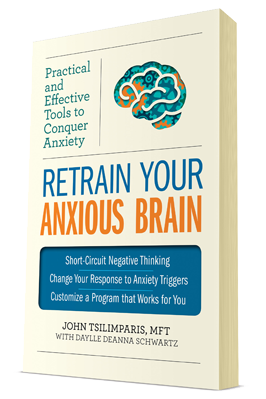What is Anxiety?
All organisms have been given a fight or flight response mechanism that protects and preserves them. It is an adaptive function placed in us for the sole purpose of self-preservation. Anxiety, in a sense is an ally. When we experience a danger or a threat, the fight or flight response kicks in, adrenaline and other chemicals are activated and physical symptoms occur, rapid heart rate, palpitations, increase in blood pressure, etc. For most people these debilitating symptoms taper off and the body is restored back to it’s normal state. However, for some individuals, the adrenaline is not metabolized as easily and it may linger in the body longer. Hence, we need to look at anxiety as a physiological condition that needs behavioral adjusting, as opposed to a psychiatric illness.
What happens to the body during a panic attack?
When the brain perceives a threat or danger, messages are sent to a section of your nerves called the autonomic nervous system (ANS) which then activates the adrenal glands in the kidneys to secrete chemicals, such as adrenaline and noradrenaline, which key up the body for fight or flight. The autonomic nervous system is divided into two sub-sections called the sympathetic nervous system and the parasympathetic nervous system. The sympathetic nervous system is the actual system that releases energy and prepares the body for action. The body then typically restores itself back to normal after a period of time by the parasympathetic nervous system, which acts as a kind of stabilizer.
For people who are prone to anxiety and panic attacks, their parasympathetic nervous system, or their ability to restore their body back to normal after experiencing a stressor, does not seem to function properly. Hence, people who suffer from anxiety and panic attacks have a faulty parasympathetic nervous system, which for some unknown reason mal-functions in its ability to restore the body back to a normal state. The sufferer then remains keyed up simply because there are high levels of free-floating adrenaline in the body that have not burned off yet. For some it lasts for hours, for others it can last for days.
As mentioned earlier, anxiety is an adaptive function that has evolved through time. The symptoms that anxiety or panic attacks produce have remarkably important purposes in protecting the organism from danger. We must look at the function of anxiety as a primal defense that goes as far back as the caveman.
The cardiovascular activation by the sympathetic nervous system produces an increase in heart rate and strength of the heartbeat. This is crucial in preparation for fight or flight because it pumps blood more rapidly to the needed areas of the body. The vital areas blood is immediately sent to are, the thighs, biceps and other muscles, which assist in preparing for action. Blood is taken away from areas like the fingers and toes because if the organism is gravely injured, it is less likely to bleed to death. This is the reason why individuals experiencing a panic attack often report having cold, clammy hands and tingling sensations in their feet and toes.
The respiratory effect produced by the sympathetic nervous system also has a pertinent function. The deep, accelerated breathing helps in the preparation for fight or flight by getting the tissues of the human body more needed oxygen. The side effects of this action are of course, choking sensations, smothering, tightness in the chest and most importantly, because the blood to the head is decreased by heavy breathing, feelings of dizziness or lightheadedness. It can also cause what was described earlier as a sense of derealization –a feeling of unreality and confusion.
The fight or flight response mechanism also produces a much needed increase in sweating so that the body does not over heat while in action. Another adaptive function an increase in sweat provides is that it helps make the skin more slippery and harder to grab if caught by a predator.
The mental system is also effected by the activation of the fight or flight response mechanism. The chief function is of course to reliably alert the organism to a threat or danger in the area. The mind immediately shifts attention and focuses on its immediate surroundings for danger. Because of this effect, individuals experiencing a panic attack often relate that during an attack, they have difficulty with their memory, they have trouble concentrating and are distracted from chores and responsibilities. Subsequently, what typically happens to individuals suffering from recurring attacks is that when they can’t find identifiable stressors to rationalize their anxiety, they begin to turn it inward –the brain invents the explanation that they must be going crazy.


